India is one of the largest producers and exporters of cashew nuts in the world. With its favorable tropical climate, vast agricultural lands, and a rich history in cashew cultivation, the country has established itself as a major player in the global cashew nut industry. This summary aims to provide an overview of the cashew nut industry in India, including its production, processing, exports, challenges, and future prospects. Cashew nut cultivation in India dates back to the 16th century when Portuguese traders introduced cashew seeds from Brazil to Goa. Over the years, the cashew industry has expanded to other states such as Maharashtra, Karnataka, Andhra Pradesh, Kerala, and Tamil Nadu. Currently, India accounts for around 22% of the global cashew nut production, making it the second largest producer after Vietnam. India’s favorable tropical climate, abundant labor force, and suitable soil conditions contribute to its high cashew production. The country has a diverse range of cashew varieties, including the popular W180, W240, and W320 grades, which are known for their quality and taste. The cashew nut industry in India involves several stages, including cultivation, processing, and marketing. Cashew trees typically take about three to five years to bear fruit. Once the cashew apple ripens, it is harvested, and the cashew nuts are extracted. The nuts are then dried, shelled, and sorted according to their size and quality. This process requires skilled labor and efficient machinery to ensure high-quality cashew kernels are produced. India’s cashew processing industry is highly developed, with numerous processing units spread across the country. These units employ a large number of people, especially in rural areas, and contribute significantly to the country’s economy. The processed cashew nuts are packed in different quantities and marketed both domestically and internationally. India is a major exporter of cashew nuts, with a significant portion of its production being shipped to countries like the United States, the United Arab Emirates, European Union countries, and neighboring countries in South Asia. The export market for Indian cashews is strong due to its consistent quality, competitive pricing, and wide range of product offerings. However, the cashew nut industry in India also faces various challenges.
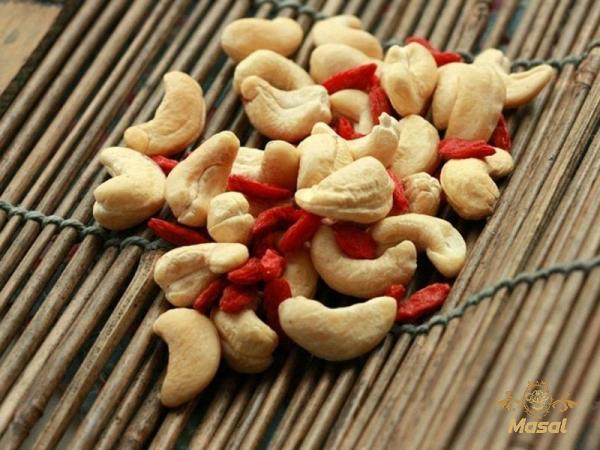
nut
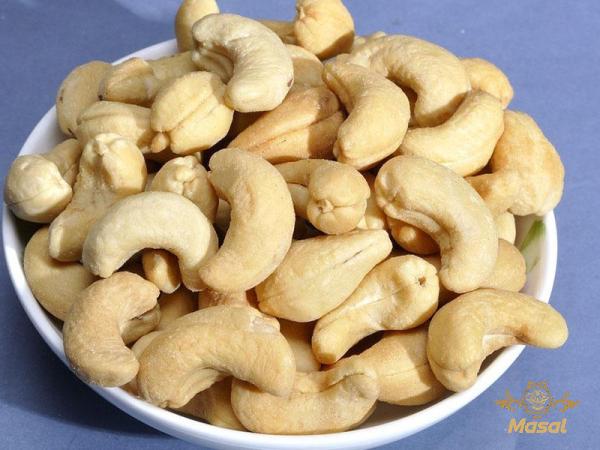 One of the major challenges is the rising competition from other cashew-producing countries, particularly Vietnam. Vietnam has emerged as the top global cashew producer, overtaking India in recent years. This competition has led to a decline in India’s market share and a need to further enhance the competitiveness of its cashew industry by focusing on quality, efficiency, and innovation. Another challenge is the fluctuating prices of raw cashew nuts in the international market. India relies heavily on importing raw cashews from African countries such as Tanzania, Mozambique, and Ivory Coast. Any price fluctuations in the global cashew market can impact the profitability and sustainability of the Indian cashew processing industry. Additionally, ensuring the sustainability and traceability of the supply chain is an ongoing challenge. Sustainable and ethical practices, such as fair labor conditions and environmental conservation, are increasingly important considerations for global consumers. Indian cashew producers and exporters need to invest in these areas to maintain their reputation and meet international standards. Despite the challenges, the future prospects of the cashew nut industry in India are promising. The increasing global demand for cashew nuts, driven by the rising popularity of healthy snacks and plant-based diets, presents significant opportunities for Indian exporters. By focusing on innovation, research, and development, Indian cashew producers can develop new product offerings and cater to changing consumer preferences. Furthermore, the Indian government has recognized the importance of supporting the cashew nut industry and has implemented various policies to enable its growth. Initiatives such as providing financial aid, promoting cashew cultivation in suitable regions, and offering technical support to farmers and processors have been undertaken to strengthen the industry’s foundation. In conclusion, India’s cashew nut industry has witnessed substantial growth and established its position as a major player in the global market. With its favorable climate, vast agricultural lands, skilled labor force, and advanced processing facilities, India has the potential to further expand its cashew export market share. By addressing the challenges and capitalizing on the growing demand for cashew nuts, the Indian cashew nut industry can thrive in the years to come. The Cashew Nut Industry in India: Opportunities and Challenges I. Introduction The cashew nut industry in India has experienced significant growth in recent years, establishing the country as a major player in the global cashew market. With its favorable climate, diverse cashew varieties, advanced processing facilities, and a skilled workforce, India has become the second-largest producer and an important exporter of cashew nuts. However, the industry also faces various challenges, including rising competition, price fluctuations, and sustainability concerns. This article explores the opportunities and challenges of the cashew nut industry in India and discusses potential strategies for its future growth.
One of the major challenges is the rising competition from other cashew-producing countries, particularly Vietnam. Vietnam has emerged as the top global cashew producer, overtaking India in recent years. This competition has led to a decline in India’s market share and a need to further enhance the competitiveness of its cashew industry by focusing on quality, efficiency, and innovation. Another challenge is the fluctuating prices of raw cashew nuts in the international market. India relies heavily on importing raw cashews from African countries such as Tanzania, Mozambique, and Ivory Coast. Any price fluctuations in the global cashew market can impact the profitability and sustainability of the Indian cashew processing industry. Additionally, ensuring the sustainability and traceability of the supply chain is an ongoing challenge. Sustainable and ethical practices, such as fair labor conditions and environmental conservation, are increasingly important considerations for global consumers. Indian cashew producers and exporters need to invest in these areas to maintain their reputation and meet international standards. Despite the challenges, the future prospects of the cashew nut industry in India are promising. The increasing global demand for cashew nuts, driven by the rising popularity of healthy snacks and plant-based diets, presents significant opportunities for Indian exporters. By focusing on innovation, research, and development, Indian cashew producers can develop new product offerings and cater to changing consumer preferences. Furthermore, the Indian government has recognized the importance of supporting the cashew nut industry and has implemented various policies to enable its growth. Initiatives such as providing financial aid, promoting cashew cultivation in suitable regions, and offering technical support to farmers and processors have been undertaken to strengthen the industry’s foundation. In conclusion, India’s cashew nut industry has witnessed substantial growth and established its position as a major player in the global market. With its favorable climate, vast agricultural lands, skilled labor force, and advanced processing facilities, India has the potential to further expand its cashew export market share. By addressing the challenges and capitalizing on the growing demand for cashew nuts, the Indian cashew nut industry can thrive in the years to come. The Cashew Nut Industry in India: Opportunities and Challenges I. Introduction The cashew nut industry in India has experienced significant growth in recent years, establishing the country as a major player in the global cashew market. With its favorable climate, diverse cashew varieties, advanced processing facilities, and a skilled workforce, India has become the second-largest producer and an important exporter of cashew nuts. However, the industry also faces various challenges, including rising competition, price fluctuations, and sustainability concerns. This article explores the opportunities and challenges of the cashew nut industry in India and discusses potential strategies for its future growth.
Specifications of nut
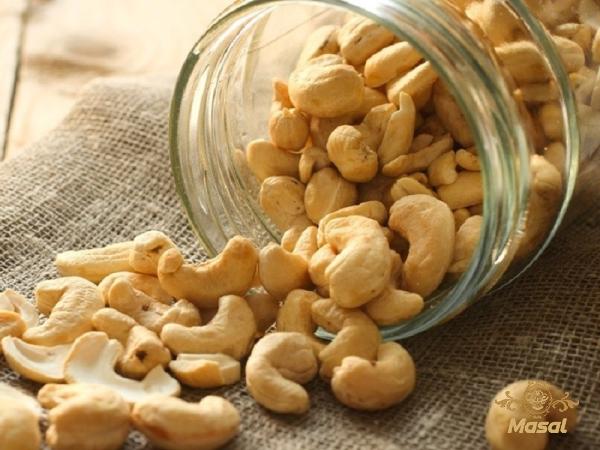 II. Overview of Cashew Cultivation in India Cashew nut cultivation in India has a rich history dating back to the 16th century when Portuguese traders introduced cashew seeds. Today, cashew trees are grown in states such as Goa, Maharashtra, Karnataka, Andhra Pradesh, Kerala, and Tamil Nadu. India’s tropical climate, favorable soil conditions, and skilled labor contribute to its high cashew production. The country produces a wide range of cashew varieties, including the popular grades W180, W240, and W320, known for their quality and taste. III. The Cashew Nut Processing Industry The processing of cashew nuts in India is a crucial stage that ensures the production of high-quality cashew kernels. The industry has developed advanced processing units across the country, employing a large workforce, particularly in rural areas. The process involves harvesting the ripe cashew apples, extracting the cashew nuts, and drying, shelling, and sorting them based on size and quality. Efficient machinery and skilled labor are essential for achieving consistent quality and meeting international standards. IV. India’s Position in the Global Cashew Market India is a major exporter of cashew nuts, accounting for around 22% of global production. The country’s cashew exports are renowned for their consistent quality, competitive pricing, and diverse product offerings. Indian cashews are primarily shipped to the United States, the United Arab Emirates, European Union countries, and neighboring South Asian countries. The global demand for cashew nuts, driven by the popularity of healthy snacks and plant-based diets, presents significant growth opportunities for the Indian cashew nut industry. V. Rising Competition from Other Cashew-Producing Countries One of the major challenges faced by the Indian cashew nut industry is the rising competition from countries like Vietnam. Vietnam has emerged as the largest global cashew producer, overtaking India in recent years. This competition has led to a decline in India’s market share and calls for the industry to enhance its competitiveness. To maintain its position, India needs to focus on improving quality, efficiency, and innovation, as well as differentiating its products through unique offerings. VI. Price Fluctuations and Raw Cashew Imports India heavily relies on importing raw cashews from African countries, including Tanzania, Mozambique, and Ivory Coast. Any price fluctuations in the global cashew market can significantly impact the profitability and sustainability of the Indian cashew processing industry. To mitigate this risk, Indian cashew producers and processors need to closely monitor market trends, establish strategic partnerships with suppliers, and explore options for increasing domestic cashew production.
II. Overview of Cashew Cultivation in India Cashew nut cultivation in India has a rich history dating back to the 16th century when Portuguese traders introduced cashew seeds. Today, cashew trees are grown in states such as Goa, Maharashtra, Karnataka, Andhra Pradesh, Kerala, and Tamil Nadu. India’s tropical climate, favorable soil conditions, and skilled labor contribute to its high cashew production. The country produces a wide range of cashew varieties, including the popular grades W180, W240, and W320, known for their quality and taste. III. The Cashew Nut Processing Industry The processing of cashew nuts in India is a crucial stage that ensures the production of high-quality cashew kernels. The industry has developed advanced processing units across the country, employing a large workforce, particularly in rural areas. The process involves harvesting the ripe cashew apples, extracting the cashew nuts, and drying, shelling, and sorting them based on size and quality. Efficient machinery and skilled labor are essential for achieving consistent quality and meeting international standards. IV. India’s Position in the Global Cashew Market India is a major exporter of cashew nuts, accounting for around 22% of global production. The country’s cashew exports are renowned for their consistent quality, competitive pricing, and diverse product offerings. Indian cashews are primarily shipped to the United States, the United Arab Emirates, European Union countries, and neighboring South Asian countries. The global demand for cashew nuts, driven by the popularity of healthy snacks and plant-based diets, presents significant growth opportunities for the Indian cashew nut industry. V. Rising Competition from Other Cashew-Producing Countries One of the major challenges faced by the Indian cashew nut industry is the rising competition from countries like Vietnam. Vietnam has emerged as the largest global cashew producer, overtaking India in recent years. This competition has led to a decline in India’s market share and calls for the industry to enhance its competitiveness. To maintain its position, India needs to focus on improving quality, efficiency, and innovation, as well as differentiating its products through unique offerings. VI. Price Fluctuations and Raw Cashew Imports India heavily relies on importing raw cashews from African countries, including Tanzania, Mozambique, and Ivory Coast. Any price fluctuations in the global cashew market can significantly impact the profitability and sustainability of the Indian cashew processing industry. To mitigate this risk, Indian cashew producers and processors need to closely monitor market trends, establish strategic partnerships with suppliers, and explore options for increasing domestic cashew production.
buy nut
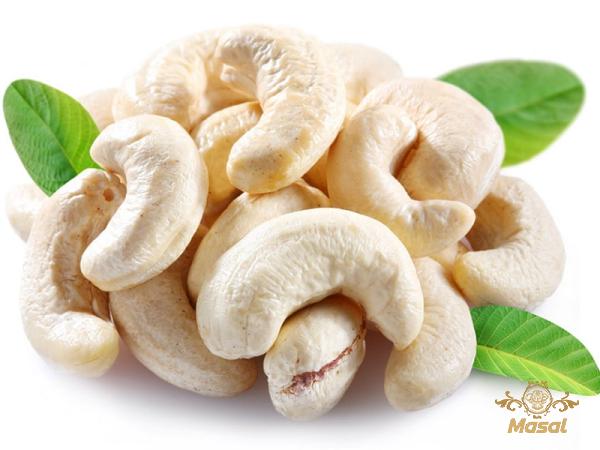 VII. Sustainability and Traceability Concerns Ensuring the sustainability and traceability of the cashew supply chain is increasingly important for the global market. Consumers are now more conscious about ethical practices, fair labor conditions, and environmental conservation. Indian cashew producers need to invest in sustainable farming methods, promote fair trade practices, and implement traceability systems to fulfill these growing demands. This includes ensuring responsible sourcing, reducing waste, and adopting eco-friendly packaging solutions. VIII. Government Initiatives Supporting the Cashew Nut Industry The Indian government recognizes the importance of supporting the cashew nut industry and has implemented various initiatives to stimulate its growth. Financial aid programs, technical support to farmers and processors, and promoting cashew cultivation in suitable regions are some of the measures taken to strengthen the industry’s foundation. Additionally, the government aims to enhance the industry’s competitiveness by providing access to credit, skill development programs, and promoting research and development. IX. Potential Strategies for Future Growth To ensure the long-term growth of the cashew nut industry in India, several strategies can be considered. Firstly, there is a need to invest in research and development to develop new cashew varieties and products tailored to changing consumer preferences. Secondly, encouraging value addition through the production of processed cashew products like cashew butter, cashew milk, and cashew-based snacks can create new market opportunities. Thirdly, expanding domestic cultivation and reducing dependence on imported raw cashews can help to stabilize prices and improve supply chain efficiency. X. Conclusion The cashew nut industry in India has established itself as a prominent player in the global market, contributing significantly to the country’s economy. With its favorable climate, diverse cashew varieties, and advanced processing facilities, India has a competitive advantage. However, the industry must navigate challenges such as rising competition, price fluctuations, and sustainability concerns to maintain its position and seize future opportunities. By focusing on quality, innovation, sustainable practices, and government assistance, the cashew nut industry in India can continue to thrive and contribute to global cashew consumption.
VII. Sustainability and Traceability Concerns Ensuring the sustainability and traceability of the cashew supply chain is increasingly important for the global market. Consumers are now more conscious about ethical practices, fair labor conditions, and environmental conservation. Indian cashew producers need to invest in sustainable farming methods, promote fair trade practices, and implement traceability systems to fulfill these growing demands. This includes ensuring responsible sourcing, reducing waste, and adopting eco-friendly packaging solutions. VIII. Government Initiatives Supporting the Cashew Nut Industry The Indian government recognizes the importance of supporting the cashew nut industry and has implemented various initiatives to stimulate its growth. Financial aid programs, technical support to farmers and processors, and promoting cashew cultivation in suitable regions are some of the measures taken to strengthen the industry’s foundation. Additionally, the government aims to enhance the industry’s competitiveness by providing access to credit, skill development programs, and promoting research and development. IX. Potential Strategies for Future Growth To ensure the long-term growth of the cashew nut industry in India, several strategies can be considered. Firstly, there is a need to invest in research and development to develop new cashew varieties and products tailored to changing consumer preferences. Secondly, encouraging value addition through the production of processed cashew products like cashew butter, cashew milk, and cashew-based snacks can create new market opportunities. Thirdly, expanding domestic cultivation and reducing dependence on imported raw cashews can help to stabilize prices and improve supply chain efficiency. X. Conclusion The cashew nut industry in India has established itself as a prominent player in the global market, contributing significantly to the country’s economy. With its favorable climate, diverse cashew varieties, and advanced processing facilities, India has a competitive advantage. However, the industry must navigate challenges such as rising competition, price fluctuations, and sustainability concerns to maintain its position and seize future opportunities. By focusing on quality, innovation, sustainable practices, and government assistance, the cashew nut industry in India can continue to thrive and contribute to global cashew consumption.



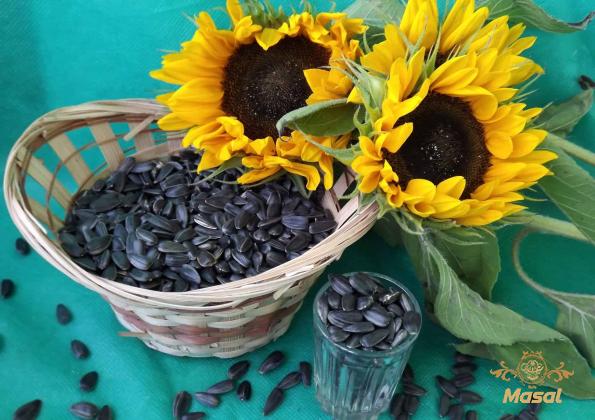

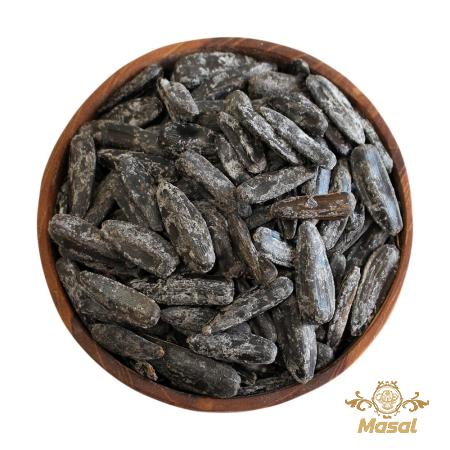
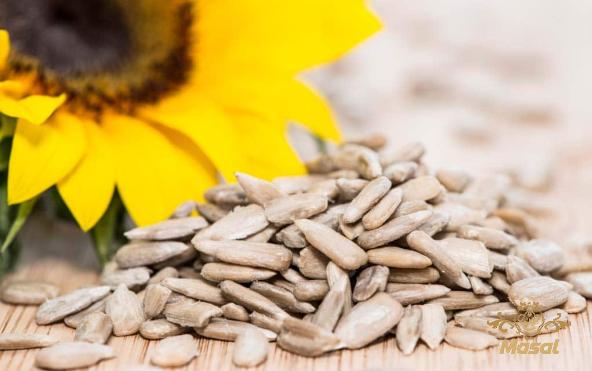
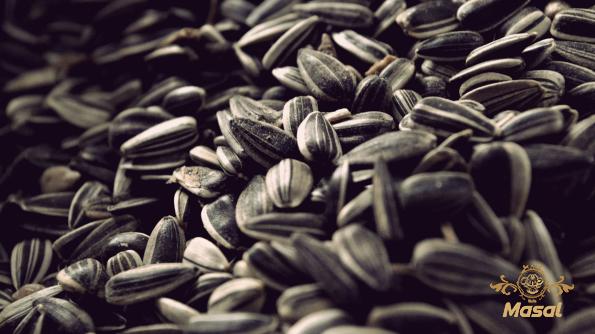


Your comment submitted.